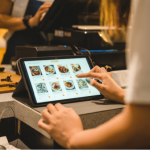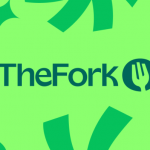Lately, much is written about veganism and vegan food and how it can improve our life and the environment. Having been one of those individuals that gave this a good try (I lived a 100 % vegetarian life for six months) here are my observations and thoughts.
Veganism is currently defined as a way of living that attempts to exclude all forms of animal exploitation and cruelty, be it from food, clothing, or any other purpose.
To make sure everyone is on the same page here is a brief description of veganism.
“Veganism is the practice of abstaining from the use of animal products, particularly in diet, and an associated philosophy that rejects the commodity status of animals. An individual who follows the diet or philosophy is known as a vegan. Distinctions may be made between several categories of veganism. Dietary vegans, also known as “strict vegetarians”, refrain from consuming meat, eggs, dairy products, and any other animal-derived substances. An ethical vegan, also known as a “moral vegetarian”, is someone who not only follows a vegan diet but extends the philosophy into other areas of their lives and opposes the use of animals for any purpose. Another term is “environmental veganism”, which refers to the avoidance of animal products on the premise that the industrial farming of animals is environmentally damaging and unsustainable.”
Types of veganism
Prominent types of this lifestyle include:-
Dietary vegans. Often used interchangeably with “plant-based eaters,” this term refers to those who avoid animal products in their diet but continue to use them in other products, such as clothing and cosmetics.
Whole-food vegans. These individuals favor a diet rich in whole foods, such as fruits, vegetables, whole grains, legumes, nuts, and seeds.
Junk-food vegans. Some people rely heavily on processed vegan food, such as vegan meats, fries, frozen dinners, and desserts, including Oreo cookies and non-dairy ice cream.
Raw-food vegans. This group eats only foods that are raw or cooked at temperatures below 118°F (48°C) (22Trusted Source).
Low-fat, raw-food vegans. Also known as fruitarians, this subset limits high-fat foods, such as nuts, avocados, and coconuts, instead relying mainly on fruit. Other plants are occasionally eaten in small amounts.
Source: https://www.healthline.com/
Now that we are past the educational stage for those not familiar with a vegetarian lifestyle, let me give you some of the less, but equally strong arguments, of a true vegetarian, all to be taken with a pinch of salt or a smile…
The ‘true blue’ vegetarian only eats in vegetarian restaurants and does not eat in ‘normal’ restaurants where a vegetarian dish or two is on the menu – the reason for this being that in the kitchen, the chopping boards and knives also cut meat, pots and pans are not used exclusively for vegan food preparation and so on.The ‘true blue’ vegetarian believes that only a vegetarian would know how to cook a vegan meal, while a ‘normal’ chef would see that as a necessary addition’ to a menu (like low carb or glutton free) but with no real ‘belief’ in what he prepares.The ‘true blue’ vegetarian also believes that food prepared by a follower of a religious group will only understand the real meaning of a vegetarian lifestyle, that includes all aspects from food to home life.The ‘true blue’ vegetarian does not have any leather furniture or clothing, that has its origin in an animal product. So, if you visit a vegetarian and he/she has a leather sofa or jacket, these are ‘fake’ vegans. The ‘true Blue’ vegetarian only eats in vegetarian restaurants, even though they charge outrageous prices for their raw, semi cooked, or overcooked food.The ‘true blue’ vegetarian does not eat any biscuits, or baked food that are prepared with animal fat.
During my 6 -month stint as a vegetarian I realised that initially it was curiosity that led me to live and eat that way, but I soon realised that something was missing. When you have been a meat-eating human all your life with the occasional short breaks, my body gave me the message that it needed meat, and fish and eggs and cheese and, and…
While the vegan lifestyle is endorsed by many ‘well known’ (know it all) people, for its benefits, which no doubt have some validity, they forget to mention the shortcomings of a 100% vegetarian diet, which can lead to protein deficiency, iron deficiency, lack of vitamin B12 and stomach problems just to mention just a few.
And there is one more important factor…The vegan lifestyle isn’t cheap!
Regular milk, for instance, is much cheaper than plant-based milks like almond and soy milk. Fresh fruits and vegetables and other plant protein sources also cost more than easily accessible animal proteins.
When visiting the vegetarian section in a supermarket you asked yourself if the tofu and ‘fake chicken burger’ are made with gold nuggets or the exorbitant price for 100grams of vegetarian kimchi is really worth the effort!
Coming back to my initial question if veganism is going mainstream, I’m not sure the world is ready for it, yet, but there are signs that fake chickenburgers, chicken nuggets and so on are having an impact on our menus, so who knows…
About the Author
Karl Faux is a veteran Hotelier and Managing Partner with Elite Search – a leading hospitality recruitment firm.
For more information about Karl and Elite Search visit http://www.elitesearch.com.au and The Elite Hotelier http://www.elitehotelier.net






























